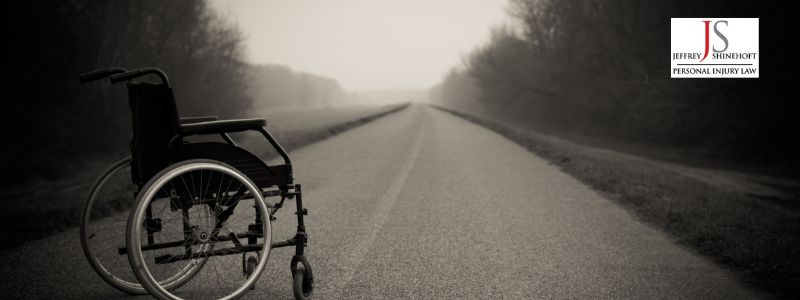Client story: A call for decency

Decency is free. It costs us nothing and is available in unlimited supply. So can we not infuse more of it into our legal processes?
I recently was retained on a file for a car accident victim who was seriously injured in a motor vehicle accident two years prior. When I visited at home, I found a person confined to a wheelchair with a hip injury; a head injury and soft-tissue damages; and significant psychological trauma.
The surgery he was due to have on his hip was indefinitely delayed because the pre-op blood results came back showing marijuana in his system. The social worker on file advocated for his urgent surgery. But he continued to wait.
He lived alone on a rural farm and had very little in the way of support. His home was unclean. He could not shower, wash his clothes, cook, or utilize the upstairs. He set up a makeshift bedroom in his family room and was left, essentially, a prisoner of his own home.
His days were spent sitting at his coffee table, littered with mostly unopened paperwork, smoking and drinking alcohol. He borrowed money from his mother for these “comforts” and food.
At the time I was retained, he had used all of his non-catastrophic insurance funding so there was no additional money for treatment until such time as he was declared Catastrophically Impaired (CAT).
A designation of CAT triggers additional funding for both medical and attendant care benefits amongst other additional benefits. Had a qualified lawyer been retained earlier, he would likely have already been deemed CAT.
All he asked for from his insurer was to continue to pay his Income Replacement Benefit of $400 per week, buy or rent him a new wheelchair, and provide him basic support.
The insurer continued to pay a small amount for an attendant to pick up groceries and showed no consideration for my client’s mental health.
He had beat back his struggle with addiction prior to the car accident. But substance abuse again became a coping mechanism – this time for pain, frustration at his change of circumstance, and a new dependence on others. He felt that he had no voice and blamed for his addiction.
We owe injured people, at a minimum, the time and attention to consider if there is not a better way and ask questions such as:
-
Should we proceed without juries?
-
Should we place limits on the number of times an accident victim can be assessed?
-
Should we use a more supportive collaborative method to resolve disputes?
-
Can the system achieve just results while enforcing strict timelines and significantly shorter, less expensive hearings?
-
Can good recovery be incentivized while still providing for the injured who cannot get better?
-
Should there be a cap on the length of time parties are cross-examined?
My client died not too long ago. It was a heart attack. I am sure the stress was part of it.
Even if we could prove the car accident killed him (note: the rules of “causation” have become more difficult for injured people in the Accident Benefit context), his estate would be entitled to less than $50,000.
When he died he was a shell of who he was and this was, in part, due to a system that too often doesn’t look for the PERSON amid the facts. We can do better with just a little decency.

